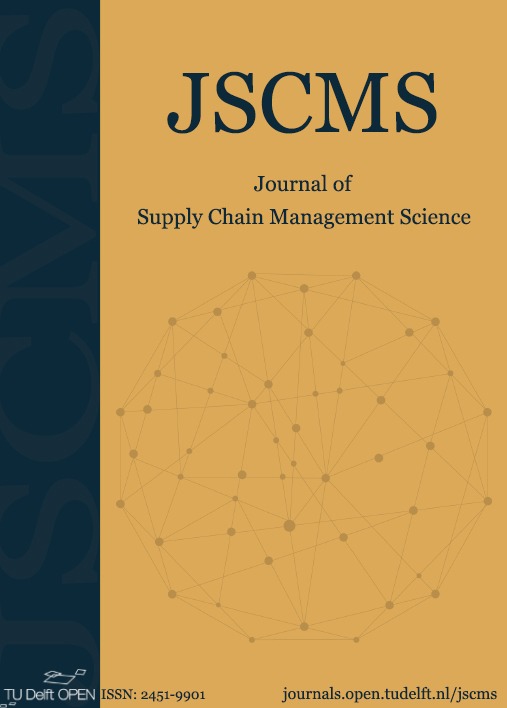Decarbonization through modal shift using a synchromodal platform: A case study in the Great Lakes
DOI:
https://doi.org/10.59490/jscms.2023.7145Abstract
This paper offers an empirical study to explore the relationship between transportation modalities and environmental concerns, promoting the adoption of synchromodality as a strategic pathway to achieving sustainable freight transport. The study uses a synchromodal freight transportation platform to analyze the impact of carbon tax policy on modal shift and environmental sustainability. The synchromodal platform is based on an optimization model using Mixed Integer Linear Programming (MILP), incorporating carbon tax as a surrogate measure for environmental costs. A sensitivity analysis is conducted across four distinct scenarios in a case study in the Great Lakes region, focusing on the Canada-US transborder trade. The results of this study illustrate the considerable potential for increasing the utilization of more environmentally sustainable transportation modes in this region. While the addition of carbon tax entails increased total transportation costs for each unit of cargo, the synchromodal-enabled modal shift promises to mitigate transportation’s negative externalities, including congestion, environmental impacts, and noise pollution. The results also highlight the role of synchromodality as a catalyst for sustainable freight transport decisions in the context of a carbon-conscious world.
Downloads
Published
How to Cite
Issue
Section
License
Copyright (c) 2023 Journal of Supply Chain Management Science

This work is licensed under a Creative Commons Attribution 4.0 International License.
JSCMS is licensed under a Creative Commons Attribution 4.0 International (CC BY 4.0) licence. The license means that anyone is free to share (to copy, distribute, and transmit the work), to remix (to adapt the work) under the following conditions:
- The original authors must be given credit
- For any reuse or distribution, it must be made clear to others what the license terms of this work are
- Any of these conditions can be waived if the copyright holders give permission
- Nothing in this license impairs or restricts the author's moral rights


